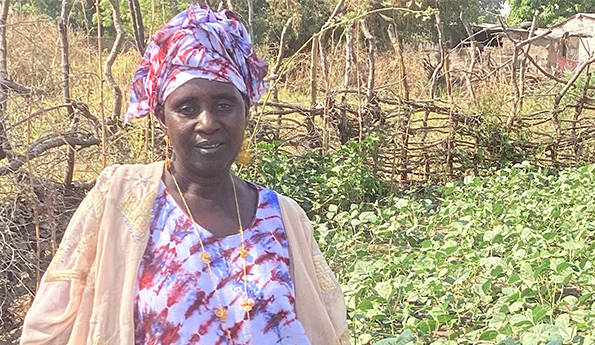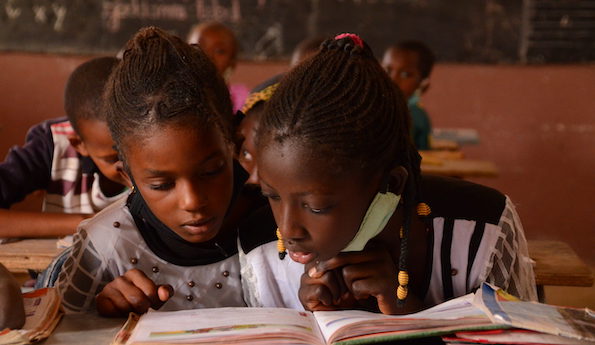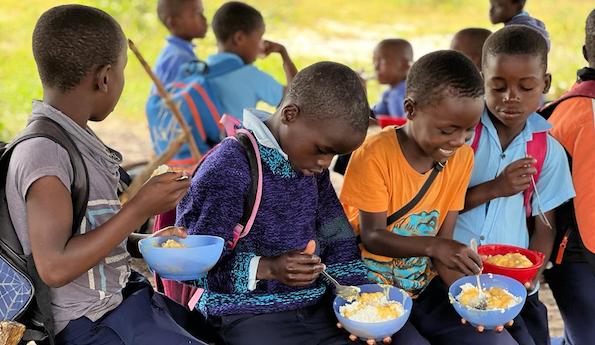School feeding programs have the power to not only improve the lives of children, but also have a transformative ripple effect in the wider community with the procurement of local food. Engaging local farmers and producers in the school feeding process expands the project’s reach by supporting the local economy and creating a sustainable model of locally led development.
For example, in the regions of Sedhiou and Kolda in southern Senegal, where Counterpart implements Sukaabe Janngo II, a USDA-funded McGovern-Dole Food for Education and Child Nutrition project, the more than 200 women working in the cornmeal processing units now play an active role in the feeding of local school children. With their help, the project provides more than 80,000 students with daily nutritious meals, often the only reliable meal the children can count on.

Workers at the Sainte Marthe processing unit in Kounkané, Senegal sort corn that is procured through the Sukaabe Janngo II project.
The local suppliers have already reaped the economic benefits of the local partnership.
“Thanks to Sukaabe Janngo II, we understand that we can grow our businesses. On the one hand, we are able to bid on contracts, and we are also able to meet quality requirements that previously seemed out of reach. Our activity strengthens ties with local farmers who understand better why we demand quality in the supply of the raw material (corn),” explains Jackie Diandé of the Sainte Marthe processing unit in the Kolda region.
The local procurement component of Sukaabe Janngo II requires a set of complex but integrated procedures to ensure the quality, quantity, and transparency of locally produced food for the benefit of the school canteens.
Procurement of cornmeal from local processors
The sustainability of a school meals project requires consistent and substantial national funding in partnership with community contributions and local government budget support. The number of students in need of healthy, regular meals is significant, and only long-term government investment can achieve this. Additionally, school feeding that is built on the purchase of food from local producers and processing units ensures sustainability for lasting impact.

A worker at the Sen Agro Ménage processing unit in Kaolack, Senegal holds samples of cornmeal.
As part of the program design, Counterpart has procured 940 metric tons of cornmeal—produced and processed locally— over the life of the project. This will generate approximately $1 million, reaching well over 5,000 individuals who support households averaging seven people.
Cornmeal facilitates meal diversification (in place of rice) and stimulates corn production by local producers, which generates revenue. Processing units that have difficulty competing with larger companies or multinational corporations find their place in the local economy.
To satisfy the orders of Sukaabe Janngo II, the processors have already mobilized more than 2,000 corn producers from whom they purchased 450 metric tons of raw product.
“Today, we are enthusiastic about planting and producing because we know that the harvest will be purchased. We can make projections and that reassures us,” said Souleymane Baldé, president of the Diankakounda cooperative, which collaborates with the Sainte Marthe and Verger du Sud processing units.
Securing local buy-in from the communities we serve is key to fostering a sustainable future for the next generation.






